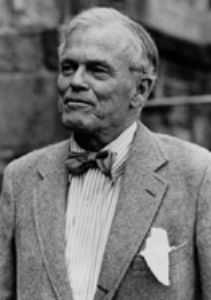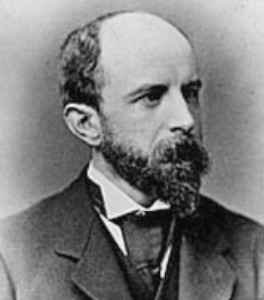Related Topics
Religious Philadelphia
William Penn wanted a colony with religious freedom. A considerable number, if not the majority, of American religious denominations were founded in this city. The main misconception about religious Philadelphia is that it is Quaker-dominated. But the broader misconception is that it is not Quaker-dominated.
Philadelphia Politics
Originally, politics had to do with the Proprietors, then the immigrants, then the King of England, then the establishment of the nation. Philadelphia first perfected the big-city political machine, which centers on bulk payments from utilities to the boss politician rather than small graft payments to individual office holders. More efficient that way.
Quakers: The Society of Friends
According to an old Quaker joke, the Holy Trinity consists of the fatherhood of God, the brotherhood of man, and the neighborhood of Philadelphia.
Academia in the Philadelphia Region
Higher education is a source of pride, progress, and aggravation.
Literary Philadelphia
Literary
Cultural
Culture and Traditions (2)
Customs, Culture and Traditions (2)
.
Right Angle Club 2010
2010 is coming to a close, a lame-duck session is upon us, and probably after that will come two years of gridlock. But the Philadelphia Men's Club called the Right Angle, keeps right on talking about the current scene. A few of these current contents relate to speeches given elsewhere.
Philadelphia's Fourth Century: Revival or Relapse?
Novelists, sociologists, playwrights, financiers, historians, poets -- and others -- have described and explained the rise and fall of Philadelphia. Each of them is a little bit right, and a little wrong. Philadelphia is hidden, but it isn't hiding.
Quaker Business
New topic 2016-12-04 04:11:17 description
Puritan Boston & Quaker Philadelphia

|
| Professor Digby Baltzell |
Digby Baltzell had something of the defiant rebel in him. He surely didn't imagine his employer, the University of Pennsylvania, was pleased to have him a document that Harvard is a better college than Penn. Nor were fellow members of the Philadelphia Club pleased to confront scholarship that his city's gentry was too devoted to money-making to accept the ardors of public leadership. Nor would his relatives in the Society of Friends enjoy accusations their religion impaired the pursuit of excellence in all fields of the city's endeavor. Later articles will here take up some unfair assaults, and defend Quaker simplicity and Peace Testimony. Some blame must, of course, be shared, some mitigating circumstances acknowledged. And let it be said in Baltzell's support that it truly is remarkable how many cultural features do get passed down for ten or more generations. Or even longer; look at the persistence of ancient Chinese, Indian, Esquimo, Viking, Roman, Christian and other cultural heritage. The Quakers got to Pennsylvania early, they are now vastly outnumbered. Many Quaker ideas continue to influence present inhabitants, some ideas probably hold us back. Substitute "Puritans of Boston" for "Quakers" in the foregoing sentence, and conclude by saying "some of those ideas probably give Bostonians an edge". Those two rather unexceptional declarations summarize a controversial book, although they do not completely capture its overall censorious flavoring.
To a certain extent, Digby is his own worst enemy. While alive, he was one of the world's most charming raconteurs, a walking encyclopedia of local lore. Like a good docent in a museum, he could walk into a room hung with portraits, and charm any audience for an hour; presumably, his sociology lectures at Penn held the same magnetism for his classes. In a book for popular readers, however, it is overdone to go on about the same point for six hundred pages. He needed a better editor, or perhaps he needed to permit a better editor to make him restrain his tendency to multiply illustrations beyond the point where the reader loses the thread of the argument. Not all readers will agree with his argument; they can only be legitimately defeated by focused argument. That's perhaps unrequired of college professors holding the power of grade-point averages over nineteen-year-olds, but it is expected of conversation with other adults. If an editor wants to sell books to a general bookstore audience, he should induce authors to overcome the take-it-or-leave-it habit.
As a general reaction to this book, Baltzell seems to think Quakers do not want to be rich and that consequently, latecomers into the region tend to share this feeling. My own view is that Quakers see they can have almost all of the value of being moderately rich -- by disdaining the trivial luxuries of the middle classes. They do not exactly renounce fame and power but are unwilling to gamble much or sacrifice much, in order to enjoy the comparatively small exhilaration of being very rich. They are now no longer surrounded by junior versions of themselves, but by bank-robbing Willie Suttons who readily attack Quakers for being where the money is, and appear to be pushovers at that. When Quakers then promptly demonstrate they are not pushovers at all, they are treated like outsiders in their own town. In many ways and at most times, the populist crowd gives up trying to understand Quakers and decides they must somehow always behave in ways that others would not. It's hard to achieve much deference in such an environment.
Many of Baltzell's important insights grew out of his position as a Philadelphia and academic insider; he personally knew many of the people he described. However, such an infiltrator runs the constant risk of being viewed as a tattle-tale, so a cover is required. Batzell's technique involved frequent use of quotations from others, not so much to prove a point as to rephrase it. This is another feature of the book which might have benefited from a hard-nosed editor. However this is how he wanted it, and in a post-publication revision, here is a condensation of how he summarizes his argument:
When studied with any degree of thoroughness, the economic problem will be found to run into the political problem, the political problem, in turn, run into the philosophical problem, and the philosophical problem itself to be almost indissolubly bound up at last with the religious problem.
--Irving Babbitt
In the South, ....left-wing Quakers came to the fore in the pine barrens of North Carolina-- to this day, North Carolinians speak of their state as "a valley of humilities between two mountains of conceit."
--E. Digby Baltzell
The world is only beginning to see that the wealth of a nation consists more than anything else in the number of superior men it harbors.
-- William James
I believe that ambitious men in democracies are less engrossed than any other with the interests and judgments of posterity; the present moment alone engages and absorbs them...and they are much more for success than for fame. What appears to me most to be dreaded, that in the midst of the small, incessant demands of private life, ambition should lose its vigor and its greatness.
-- Alexis de Tocqueville
Our rulers today consist of a random collection of successful men and their wives. ....They have been educated to achieve success, but few of them have been educated to exercise power. Nor do they count with any confidence upon retaining their power, nor of handing it on to their sons. They live therefore from day to day, they govern by ear. Their impromptu statements of policy may be obeyed, but nobody seriously regards them as having authority.
--Walter Lippmann
Equalitarians holding...extreme views have tended to believe that men of great leadership capacities, great energies or greatly superior aptitudes are more trouble than they are worth.
--John W. Gardiner
In the Jacksonian era in this country, equalitarianism reached such heights that trained personnel in the public service were considered unnecessary...Thus, in the West, even licensing of physicians was lax, because not to be lax was apt to be thought undemocratic.
--Merle Curti
In the late eighteenth century we produced out of a small population a truly extraordinary group of leaders-- Washington, Adams, Jefferson, Franklin, Madison, Monroe, and others. Why is it so difficult today, out of a vastly greater population, to produce men of that character?
--John W. Gardiner
It is nevertheless certain that the high quality of Virginia's political leadership in the years when the United States was being established was due in large measure to those very things which are now detested. Washington and Jefferson, Madison and Monroe, Mason, Marshall, and Peyton Randolph, were products of the system which sought out and raised to high office men of superior family and social status, of good education, or personal force, of experience in management: they were placed in power by a semi-aristocratic political system.
--Charles S. Syndor
Another clue to the relationship between hierarchy and leadership is suggested by Gardner's list of the Founding Fathers. All of these men were reared in Massachusetts or Virginia; none was reared in the colony of Pennsylvania, though Philadelphia was the largest city in the new nation and contained perhaps the wealthiest, most successful, gayest, and most brilliant elite in the land. Not only had Pennsylvanians little to do with taking the lead in our nation's founding, but the state has produced very few distinguished Americans throughout our history...I shall concentrate here on the commercial cities of Boston and Philadelphia, whose great differences in leadership and authority were far more likely to reflect differences in ideas and values.
--E. Digby Baltzell
Whatever else ...America came to be, it was also an experiment in constructive Protestantism.
--H. Richard Niehbur
All this is only to say that man is a product of his history, where nothing is entirely lost and little is entirely new.
--E. Digby Baltzell
For the wine of New England is ...more like the mother-wine in those great casks of port and sherry that one sees in the bodegas of Portugal and Spain, from which a certain amount is drawn off each year, and replaced by an equal volume of the new. Thus the change is gradual, and the mother wine of 1656 still gives bouquet and flavor to what is drawn in 1956.
--S.E. Morison
New Englanders, ambitious beyond reason to excell.
--Henry Adams

Henry Adams Pennsylvania became the ideal state, easy, tolerant and contented. If its soil bred little genius, it bred less treason. ... To politics, the Pennsylvanians did not take kindly. Perhaps their democracy was so deep an instinct that they knew not what do to with political power when they gained it; as though political power was aristocratic in its nature, and democratic power a contradiction in terms.
--Henry Adams
The reproach I address to the principles of equality is that it leads men to a kind of virtuous materialism, which would not corrupt, but would enervate the soul, and noiselessly unbend its springs of action.
--Alexis de Tocqueville
In our egalitarian age of mistrust, trustworthy men of great ability are increasingly refusing to run for public office or to serve in positions of authority and leadership in our society...In the rest of this book, I shall try to show how and why the Quaker city of Philadelphia, in contrast to Puritan Boston, has suffered from that virus of virtuous materialism for almost three centuries and how its best men, on the whole, have seldom sought public office or positions of societal authority and leadership outside business.
--E. Digby Baltzell
REFERENCES
| Puritan Boston and Quaker Philadelphia: E. Digby Baltzell. ISBN-13: 978-1560008309 | Amazon |
Originally published: Tuesday, December 29, 2009; most-recently modified: Monday, June 03, 2019